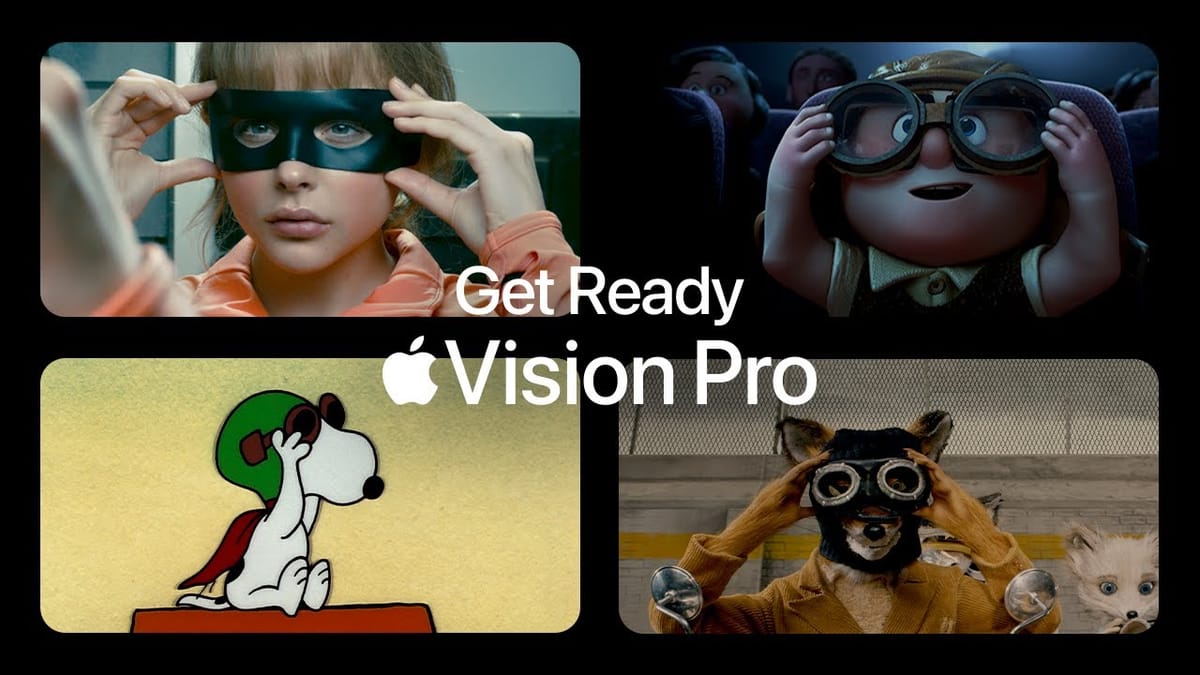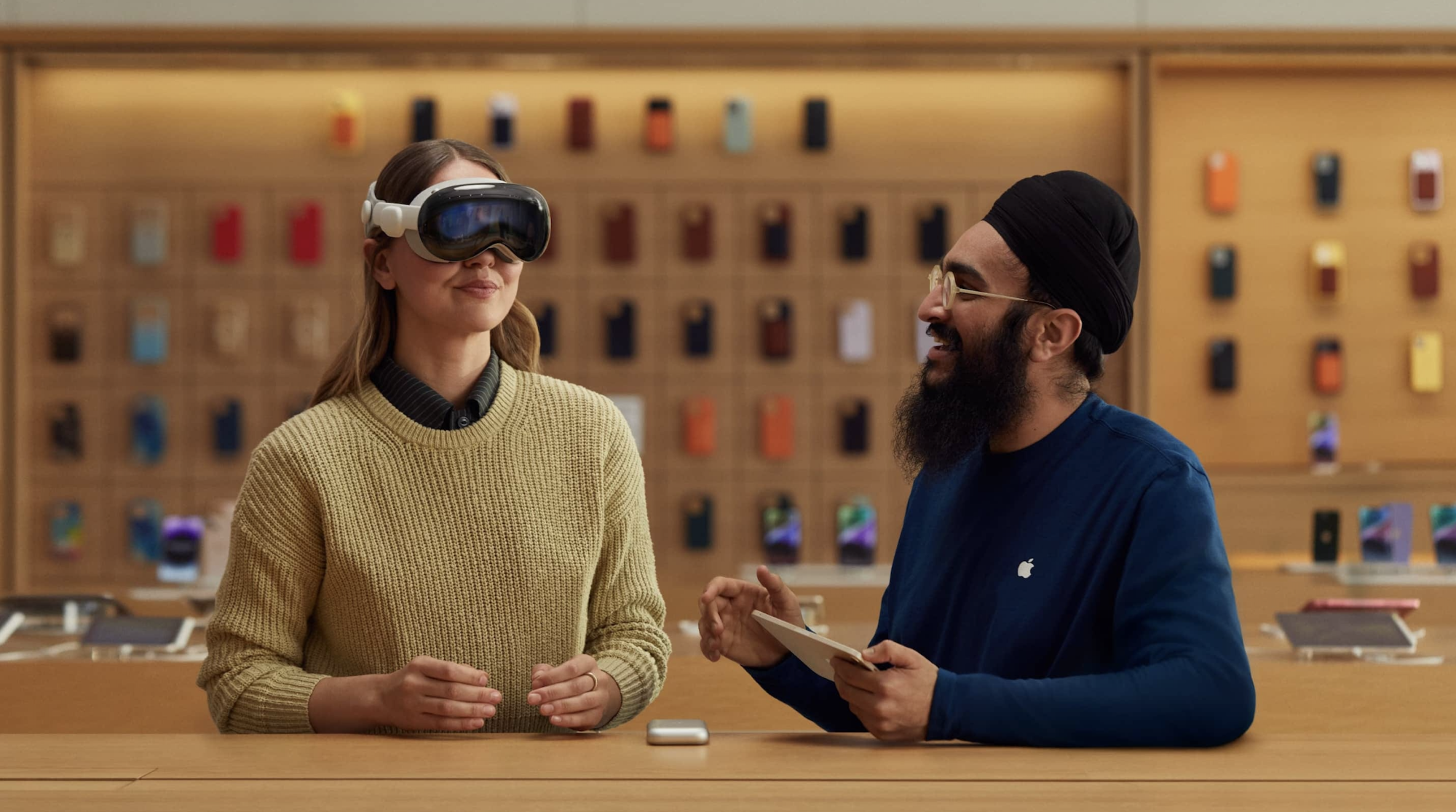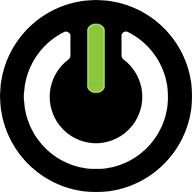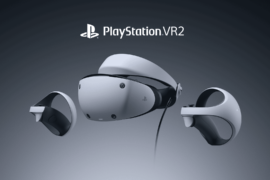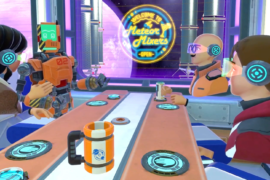Apple Vision Pro in-store demos start on launch day, and Apple will likely seek to make the best possible first impression.
Earlier in the week Apple announced that Vision Pro will launch in the US on February 2, with preorders opening this Friday, and will be exclusively available from Apple’s web store and physical Apple Stores.
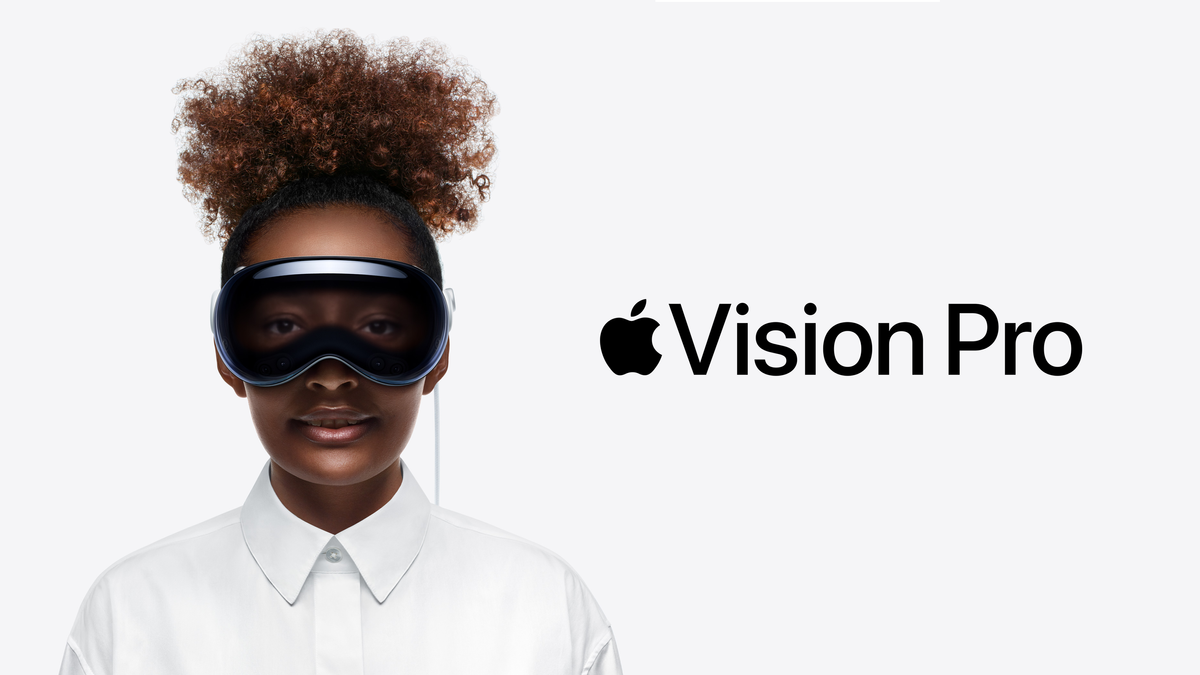
On Friday we learned from an email that ordering Vision Pro online will require a Face ID scan from a compatible iPhone or iPad Pro so that you get the ideal light seal and strap size. That email also revealed that signups for in-store demos will begin at 8am on launch day. And today Bloomberg’s Mark Gurman, who reliably reported many details of the upcoming headset before it was officially revealed or even acknowledged to exist by Apple, has more details on Apple’s in-store demo plans.
Gurman reports that actual demos will start on launch day, not just sign-ups. The biggest Apple Stores will have a dedicated area for the demos, he writes, with more than a dozen demo units available at a time.
How The In-Store Demo Will Reportedly Work
Here’s how Gurman says the demo process will work:
The demo will begin with the store employee scanning the customer’s face to figure out the best fitting light seal (what Meta calls the facial interface) and strap size, as with the online ordering process. Gurman reports that the light seal comes in more than 25 shapes and sizes.
For customers wearing glasses, the employee will scan the lenses for the prescription information, and another employee will add the correct ZEISS optical inserts to a Vision Pro in the back room then bring it out for the demo.
With the headset in hand, the employee will walk the customer through the basics, including how to control it with their eyes and hands using the look-and-pinch interaction system, and how to use the dial on the side to transition between a real world view and a fully immersive environment.
The final step before the demo begins will be calibration. The headset will walk the customer through eye tracking calibration by having them look at various dots, and then calibrate hand tracking by “scanning” their hand. Once this is done, Gurman writes, the 20-25 minute demo will begin.
The demo itself will then involve:
- Viewing regular photos, including panoramas, at lifelike scale.
- Viewing 3D “spatial” photos and 3D “spatial” videos.
- Multitasking by positioning multiple windows in space, including Safari browser tabs.
- Watching 3D movies and immersive 180-degree videos, including “clips of wild animals, the ocean and sports” and “a compelling scene that makes users feel as if they’re on a tightrope”
The headset will also be “preloaded with various third-party apps”, Gurman writes, though he doesn’t say how these will be included in demos.
Gurman claims that Apple’s goal for Vision Pro demos is “giving users an experience that’s compelling but not exhausting — ideally leaving them itching for more”.
Many existing headset owners can attest to the fact that conducting a good demo to those who haven’t tried one before is vital. A bad demo can put someone off the idea of XR, or spatial computing as Apple calls it, forever – and a great demo can have them scrambling to buy their own as soon as possible. If Gurman’s report is to be believed, it sounds like Apple understands this, and is willing to put in the effort to avoid a bad demo at all costs.
